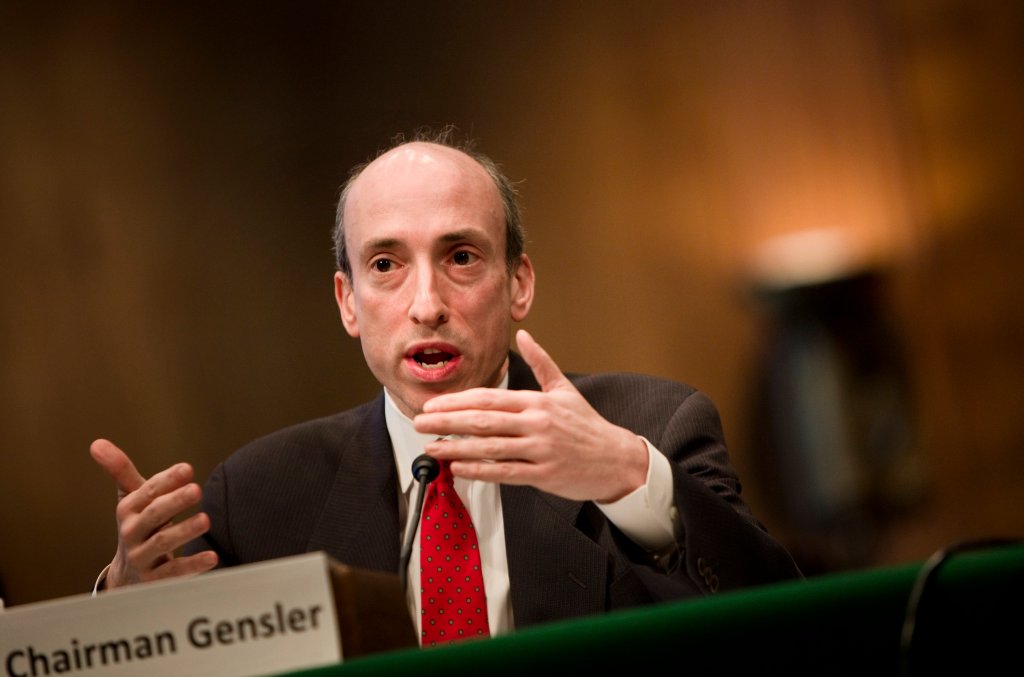SEC Chair Gary Gensler testified before the House Financial Services Committee on Wednesday, and just like in his testimony two weeks ago to the Senate Banking Committee, Republican lawmakers accused him of overreaching in his rulemaking proposals.
Just prior to the hearing, Chair Patrick McHenry (R-NC) and all committee Republicans sent a letter to Gensler, criticizing the SEC for its “reluctance to consider stakeholder feedback and its failure to conduct thorough economic analysis”. Last year, a dozen Senate Democrats, including Raphael Warnock (D-GA), Kyrsten Sinema (D-AZ), and Tim Kaine (D-VA), sent a letter to Gensler urging him to slow down and provide time for the public to evaluate rules.
Complaints are pouring in from industry voices as well that there are too many rules and not enough time for industry participants to wade through the many pages of the draft regulations.
Six financial trade associations this month sued the SEC over its new Private Funds Adviser Rule, which requires registered private fund advisers to undergo an annual financial statement audit. The trade associations claim the SEC exceeded its statutory authority and acted arbitrarily and capriciously.
Last month, Grayscale Bitcoin Trust, which had proposed launching a bitcoin ETF, successfully sued the SEC on the grounds that the agency had already approved a similar product in bitcoin futures and its actions were arbitrary and capricious.
Climate rules
The SEC’s climate-related disclosures, which were proposed in March 2022 and have not yet been adopted, would require publicly-traded companies to disclose detailed emissions data and climate risk management strategies, including direct and indirect greenhouse gas emissions from their supply chains. (Gensler said the agency received more than 15,000 comment letters on the proposal and is still working through them all.)
Republicans have claimed that this is beyond the SEC’s mandate, and they referenced the impending rules a number of times in the hearing. Gensler, in his prepared testimony, said the SEC “has no role as to climate risk itself. We, however, do have an important role in helping to ensure that public companies make full, fair, and truthful disclosure about the material risks they face.” He repeatedly stated that the SEC was not a climate regulator.
In a joint letter signed by 13 trade associations in July, the associations said the proposal “is outright hostile to the use of technology.”
Gensler pointed out that issuers are already making climate risk disclosures — a majority of the top thousand issuers by market cap do, including what’s known as Scope 1 and Scope 2 greenhouse gas emissions — and investors are already making their decisions based on such disclosures.
He stated that all the agency is really doing is trying to bring consistency and comparability to such disclosures.
Regulating AI
Lawmakers asked Gensler about the SEC’s proposal focused on investment advisers’ and broker-dealers’ use of artificial intelligence.
The proposal the agency announced in July would require firms to guard against conflicts of interest when investment firms use artificial intelligence, predictive analytics and other technologies in their dealings with retail investors. If a determination of a conflict of interest is made, the firms must eliminate or neutralize its effect.
In a joint letter signed by 13 trade associations in July, the associations said the proposal “is outright hostile to the use of technology.” In September, 19 lawmakers sent a letter to Gensler, asking several questions on the AI-focused proposal and calling the proposal “misguided, unnecessarily broad, and [one that] threatens to harm both investors and capital markets.”
Gensler’s prepared remarks just touched on what the rule proposal stated: It is meant to push firms to assess their use of certain technologies that will interact with investors and to prevent firms from placing their interests ahead of investors’ interests.


